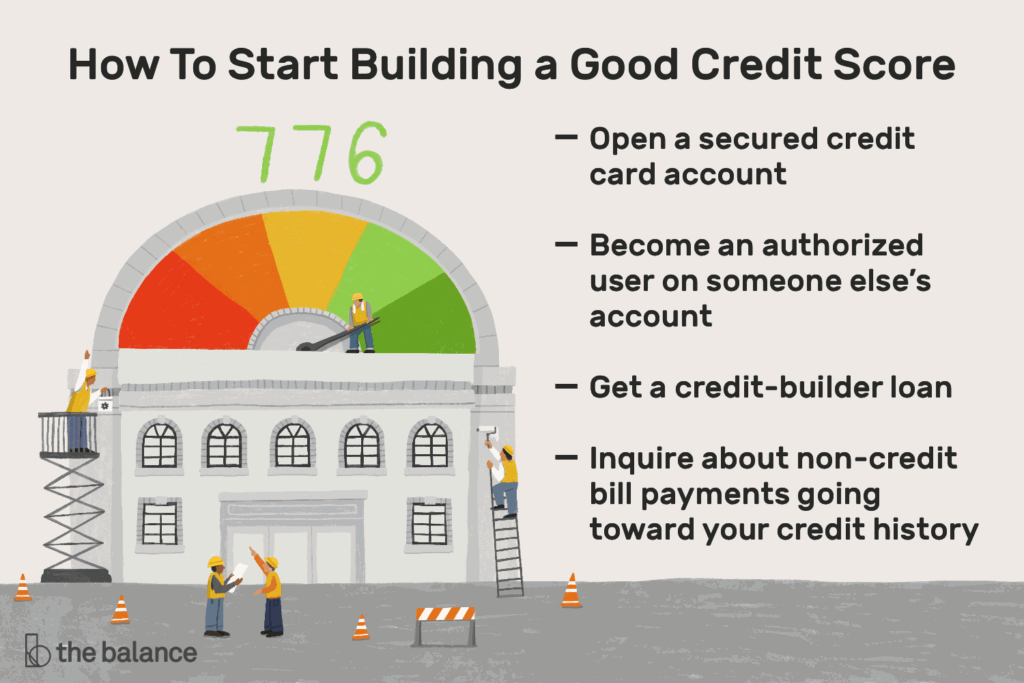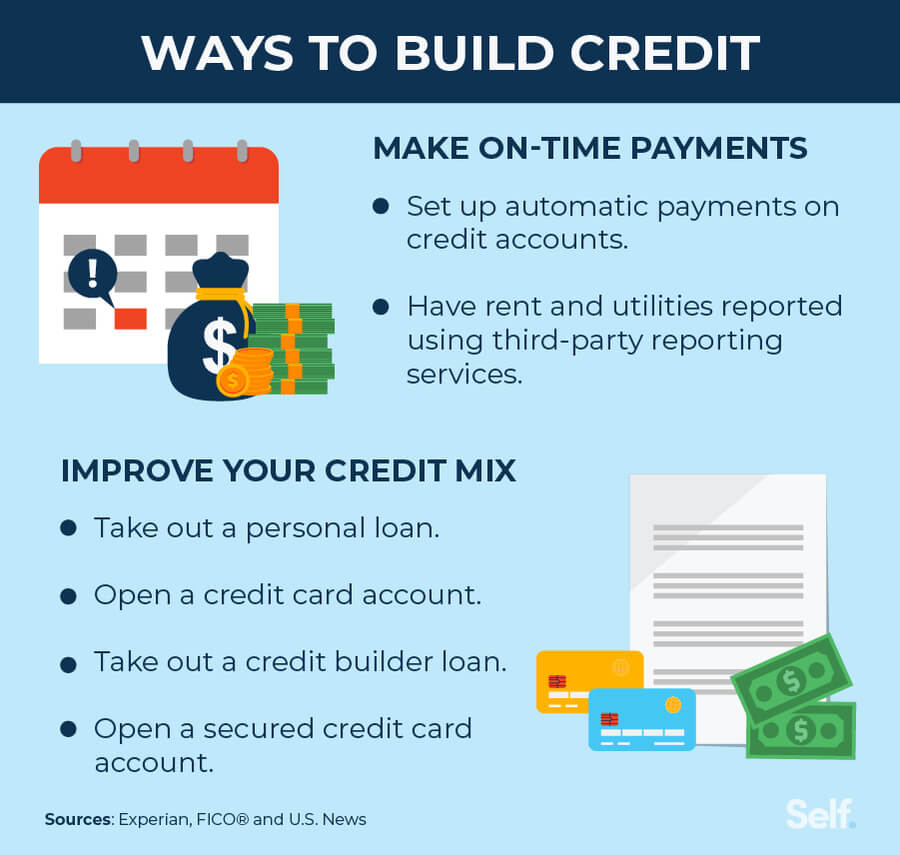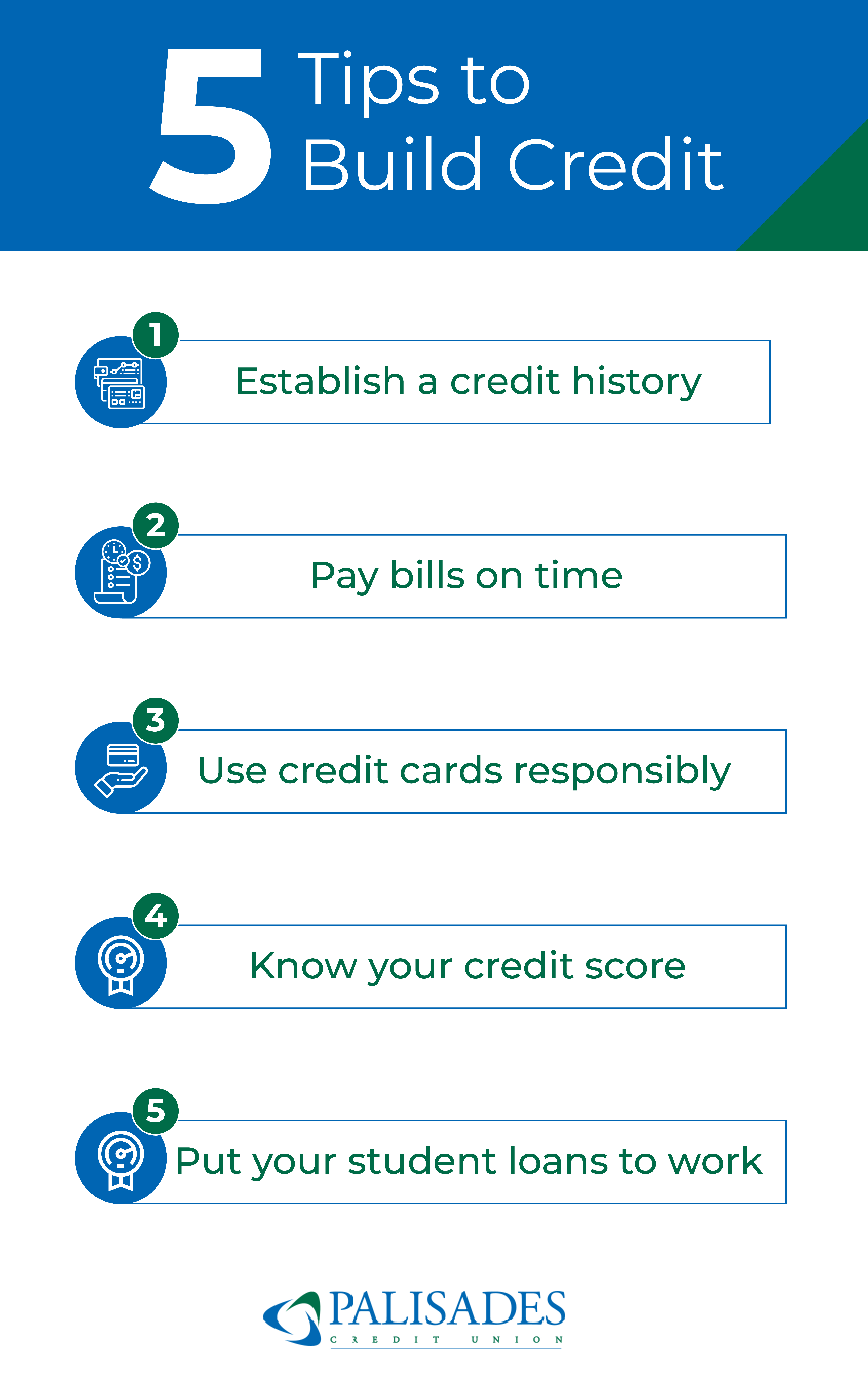Have you ever wondered how to establish credit and build a strong credit history? Well, in this article, you’re going to learn all about it! Whether you’re just starting out or trying to repair your credit, understanding the basics is crucial. From debunking myths to fixing errors and improving your creditworthiness, we’ve got you covered. So, if you’re ready to take control of your credit, keep reading!
In this article, you’ll find a wide range of content ideas that will help you navigate the world of credit repair. We’ll cover topics such as the importance of credit scores, strategies for fixing errors, and the truth behind common credit myths. You’ll also learn practical tips on building credit, managing late payments, and even negotiating with creditors. We’ve included infographics, case studies, and anecdotes to make the information more engaging. Plus, we’ll provide you with accurate information, cite credible sources, and offer actionable tips that you can implement right away. So, get ready to embark on your credit repair journey and start building a strong credit history!
Understanding Credit Scores
What is a credit score?
A credit score is a numerical representation of an individual’s creditworthiness. It is a three-digit number that ranges from 300 to 850, with a higher score indicating a stronger credit history. Lenders, landlords, and employers often use credit scores to evaluate a person’s financial responsibility and assess the risk of extending credit or entering into a financial agreement.
How is a credit score calculated?
Credit scores are calculated using various factors, including payment history, credit utilization, length of credit history, types of credit used, and new credit applications.
The most common credit scoring model is the FICO score, which takes into account the following components and their corresponding weights:
- Payment history (35%): The punctuality of your payments, including any delinquencies or late payments.
- Credit utilization (30%): The ratio of your credit card balances to your credit limits. It is recommended to keep your credit utilization below 30%.
- Length of credit history (15%): The age of your credit accounts, including the oldest account, newest account, and average account age.
- Types of credit used (10%): The diverse range of credit accounts you have, such as credit cards, mortgages, auto loans, and student loans.
- New credit applications (10%): The number of recent credit inquiries and newly opened accounts.
What factors affect your credit score?
Several factors can impact your credit score, including:
- Payment history: Consistently making on-time payments positively impacts your credit score.
- Credit utilization: High credit card balances in relation to your credit limits can negatively influence your credit score.
- Length of credit history: A longer credit history demonstrates financial responsibility and can result in a higher credit score.
- Types of credit used: A healthy mix of credit accounts, such as credit cards and installment loans, can be beneficial for your credit score.
- New credit applications: Applying for multiple credit accounts within a short period can lower your credit score.
Common misconceptions about credit scores
Unfortunately, there are several misconceptions surrounding credit scores. Some common misconceptions include:
- Closing credit accounts improves your credit score: Closing credit accounts can actually lower your credit score by reducing your available credit and shortening your average credit history length.
- Checking your credit score lowers it: Checking your own credit score, known as a soft inquiry, does not impact your credit score. However, hard inquiries from lenders can have a slight negative impact.
- Having multiple credit cards harms your credit: While opening multiple credit cards can temporarily lower your credit score due to new credit applications, having multiple credit accounts in good standing can actually benefit your credit score in the long run.
- Paying off debts immediately improves credit score: While paying off debts is a responsible financial practice, it may not immediately boost your credit score. It takes time for positive payment history to reflect in your credit report.
Fixing Credit Errors
Identifying credit report errors
Monitoring your credit report regularly is essential for identifying errors or inaccuracies that may be negatively impacting your credit score. Common credit report errors include:
- Incorrect personal information: Check for errors in your name, address, social security number, and employment history.
- Inaccurate account information: Ensure that all your accounts, balances, and payment histories are correctly reported.
- Fraudulent accounts: Look for any unfamiliar accounts that may indicate identity theft or fraud.
Disputing credit report errors
If you discover errors on your credit report, take the following steps to dispute them:
- Gather evidence: Collect supporting documentation, such as payment receipts or correspondence, to validate your claim.
- Draft a dispute letter: Write a concise and clear letter to the credit bureau explaining the errors and providing the necessary evidence.
- Submit the dispute: Send the dispute letter, along with copies of supporting documents, to each of the three major credit bureaus: Equifax, Experian, and TransUnion.
- Follow up: Keep track of the dispute process and follow up with the credit bureaus to ensure that the errors are corrected.
Working with credit bureaus
When disputing credit report errors, it is essential to understand how to work effectively with credit bureaus:
- Initiate the dispute process promptly: Once you identify an error, take immediate action to dispute it.
- Keep records of communication: Maintain a file of all correspondence and documents related to your dispute.
- Be persistent: If the credit bureaus fail to correct or remove the errors, you can escalate the issue by filing a complaint with the Consumer Financial Protection Bureau (CFPB) or seeking legal assistance.
Monitoring credit report regularly
Monitoring your credit report regularly is crucial for maintaining a strong credit history. Consider the following strategies to stay on top of your credit:
- Request free annual credit reports: Under federal law, you are entitled to a free copy of your credit report from each of the three major credit bureaus once every 12 months. Take advantage of this opportunity to review your credit reports.
- Sign up for credit monitoring services: Several credit monitoring services provide real-time notifications of any changes or potential fraudulent activity on your credit report.
- Set up fraud alerts and freezes: Place fraud alerts and credit freezes on your credit files to add an extra layer of protection to your credit information.

This image is property of www.thebalancemoney.com.
Building Credit from Scratch
Secured credit cards and their benefits
If you have no credit history or a limited credit history, obtaining a secured credit card can be an excellent way to establish credit. Secured credit cards require an upfront deposit, which acts as collateral for the credit limit. Benefits of secured credit cards include:
- Building credit history: Secured credit cards report to the credit bureaus, allowing you to establish a positive payment history.
- Graduating to an unsecured credit card: After demonstrating responsible credit behavior, such as making on-time payments, you may qualify for an unsecured credit card.
- Limiting risk: Since your credit limit is typically equal to your deposit, secured credit cards minimize the risk for both the cardholder and the credit card issuer.
Opening a credit builder loan
A credit builder loan is a type of installment loan designed to help individuals establish and improve their credit. Instead of receiving the borrowed funds upfront, the funds are deposited into a savings account. Benefits of credit builder loans include:
- Building credit history: By making regular, on-time payments, you can establish a positive payment history.
- Forced savings: Credit builder loans encourage saving by depositing funds into a designated savings account.
- Graduating to traditional loans: Once you complete the credit builder loan, you can apply for other types of loans based on your improved credit history.
Becoming an authorized user
If you have a trusted friend or family member with a strong credit history, becoming an authorized user on one of their credit card accounts can help you build credit. Here’s how it works:
- Request to become an authorized user: Approach someone with good credit and ask if they are willing to add you as an authorized user on one of their credit card accounts.
- Benefit from their credit history: As an authorized user, the credit card account’s payment history and credit limit will appear on your credit report, potentially boosting your credit score.
- Set clear expectations: Communicate with the primary account holder about how the credit card will be used and ensure mutual understanding and responsibility.
Establishing rental payment history
While rental payments do not typically appear on credit reports, you can utilize services that report your rental payment history to credit bureaus. This can be done through online platforms or by working directly with your landlord or property management company. By establishing a positive rental payment history, you demonstrate responsible financial behavior and can potentially improve your creditworthiness.
Utilization and Payment History
Understanding credit utilization ratio
Credit utilization ratio refers to the percentage of your available credit that you are currently using. Maintaining a low credit utilization ratio is important for a strong credit score. To calculate your credit utilization ratio, divide your total credit card balances by your total credit limits and multiply by 100.
For example, if you have $1,000 in credit card balances and a total credit limit of $5,000, your credit utilization ratio would be 20% ($1,000 / $5,000 x 100).
Importance of making timely payments
One of the most critical factors in building and maintaining a strong credit history is making timely payments. Late payments can have a significant negative impact on your credit score and may remain on your credit report for up to seven years. To ensure timely payments:
- Set up payment reminders: Utilize mobile apps, calendar notifications, or automatic payments to help you remember payment due dates.
- Budget effectively: Plan your expenses in a way that allows you to meet all your financial obligations each month.
- Establish an emergency fund: Having savings set aside for unexpected expenses can prevent financial hardships that may lead to missed payments.
Strategies to improve payment history
If you have past late payments or delinquencies on your credit report, there are strategies you can employ to improve your payment history:
- Catch up on missed payments: Paying off any past due balances can help improve your payment history. Contact your creditors to explore payment arrangements or hardship programs if necessary.
- Set up automatic payments: Automating your bill payments can prevent missed payments and help establish a consistent payment history.
- Negotiate payment plans: If you are unable to make full payments on outstanding debts, contact your creditors to discuss options for reduced payments or payment plans that fit your budget.

This image is property of images.ctfassets.net.
Credit Repair vs. Debt Settlement
Differences between credit repair and debt settlement
Credit repair and debt settlement are two different approaches to resolving credit-related issues. Here are the main differences:
- Credit repair: Credit repair focuses on identifying and disputing errors or inaccuracies on your credit report to improve your creditworthiness. It involves working directly with credit bureaus and creditors to correct any issues.
- Debt settlement: Debt settlement involves negotiating with creditors to reduce the amount owed on outstanding debts. This typically occurs when individuals are facing financial hardships and are unable to pay off their debts in full.
Pros and cons of credit repair
Credit repair has its advantages and disadvantages. Some pros and cons include:
-
Pros:
- Potential credit score improvement: Correcting errors on your credit report can lead to an increase in your credit score.
- Increased access to credit: A stronger credit history can make it easier to qualify for loans, credit cards, and better interest rates.
- Legal protection: Credit repair is protected by the Fair Credit Reporting Act, which ensures your right to accurate credit reporting.
-
Cons:
- Time-consuming: The credit repair process can be time-consuming, requiring careful review of your credit reports and correspondence with credit bureaus and creditors.
- No guarantee of success: While credit repair can yield positive results, there is no guarantee that disputed items will be removed from your credit report.
- Potential costs: Some credit repair services may charge fees for their assistance, making it important to carefully evaluate the costs and benefits.
Pros and cons of debt settlement
Debt settlement also has its pros and cons. Here are a few to consider:
-
Pros:
- Potential debt reduction: Debt settlement can help reduce the amount owed on outstanding debts, making it more manageable to repay.
- Debt repayment plan: Debt settlement programs often provide structured repayment plans based on your financial situation.
- Debt relief: Successfully settling debts can provide significant financial relief and help individuals move towards a debt-free future.
-
Cons:
- Negative impact on credit score: Debt settlement can have a negative impact on your credit score as settled accounts are typically reported as “Settled” or “Settled for less than the full amount.”
- Tax implications: Depending on the amount of debt forgiven, you may be required to report the forgiven amount as taxable income.
- Limited eligibility: Debt settlement is typically only available for individuals experiencing financial hardships and struggling to make payments.
Choosing the right option for your situation
Deciding between credit repair and debt settlement depends on your specific financial circumstances. Consider the following factors:
- Current financial situation: If you are struggling to make timely payments and facing significant financial hardships, debt settlement may be a more suitable option.
- Credit goals: If your primary concern is improving your credit score and addressing inaccuracies on your credit report, credit repair may be the better choice.
- Legal protection: Both credit repair and debt settlement are regulated by laws, but credit repair has more specific legal protections under the Fair Credit Reporting Act.
It is essential to conduct thorough research, consult with professionals, and carefully evaluate your options before making a decision.
Dealing with Collections and Charge-Offs
Understanding collections and charge-offs
Collections and charge-offs are two negative marks that can appear on your credit report when you fail to repay debts. Understanding these terms can help you navigate the credit repair process:
- Collections: When you fail to repay a debt, the creditor may assign or sell the debt to a collection agency. The collection agency then attempts to collect the debt from you.
- Charge-offs: When a debt becomes significantly delinquent, the creditor may decide to charge it off. This means that the creditor considers the debt uncollectible and writes it off as a loss for tax purposes. However, the debt is still owed and can be pursued by a collection agency.
Negotiating settlements and payment plans
If you find yourself dealing with collections or charge-offs, consider the following strategies:
- Assess your financial situation: Evaluate your budget and determine how much you can afford to pay towards the debt.
- Communicate with the collection agency or creditor: Contact the collection agency or creditor to discuss potential settlements or payment plans. Be prepared to negotiate and document any agreements in writing.
- Consider seeking professional assistance: If you are uncomfortable negotiating with collectors or facing complex situations, consider working with a credit counseling agency or debt settlement company.
Rebuilding credit after collections
Rebuilding your credit after dealing with collections or charge-offs may take time, but there are steps you can take to improve your creditworthiness:
- Pay off outstanding debts: If possible, pay off any remaining balances on the accounts in collections. This shows a commitment to resolving your debts.
- Establish positive credit history: Focus on making consistent, on-time payments on your current credit accounts to rebuild a positive payment history.
- Use secured credit cards or credit builder loans: Secured credit cards or credit builder loans can help rebuild credit by demonstrating responsible credit behavior.
- Monitor your credit report: Continue to monitor your credit report for any inaccuracies or potential issues. Regularly checking your credit can help you spot and address problems before they escalate.

This image is property of education.bankerstrust.com.
Exploring Professional Credit Repair Companies
Researching reputable credit repair companies
If you decide to work with a professional credit repair company, it is essential to research and evaluate their reputation and credibility. Consider the following steps:
- Check their credentials: Look for accreditation from reputable organizations such as the Better Business Bureau (BBB) or the National Association of Credit Services Organizations (NACSO).
- Review their track record: Research client reviews, testimonials, and success rates to gauge the company’s effectiveness in credit repair.
- Verify pricing and services: Understand the fees associated with their services and ensure they offer comprehensive credit repair solutions.
Understanding services and fees
Credit repair companies typically offer various services to assist individuals in improving their credit. Some common services include:
- Credit report analysis: Companies analyze your credit reports for errors, inaccuracies, or other issues that may be negatively impacting your credit.
- Dispute assistance: Credit repair companies assist in disputing errors or inaccuracies on your credit report by communicating with credit bureaus, creditors, and collection agencies.
- Credit counseling: Some companies offer credit counseling to help clients understand their credit and develop effective strategies for improving their creditworthiness.
When considering credit repair services, it is essential to understand the pricing structure and ensure there are no hidden fees. Most reputable companies charge either a one-time flat fee or monthly fees for their services.
Evaluating customer reviews and success rates
Customer reviews and success rates can provide valuable insights into a credit repair company’s track record. Look for reviews on independent review sites, social media platforms, and the company’s website. Consider the following factors:
- Positive testimonials: Look for satisfied clients who had successful experiences with the credit repair company.
- Success rates: Companies that can provide statistics or examples of their success rates may be more credible and trustworthy.
- Beware of false promises or guarantees: Be cautious if a company promises specific results or guarantees the removal of negative items from your credit report. Legitimate credit repair companies cannot guarantee specific outcomes or results.
Managing expectations and potential risks
It is important to manage your expectations when working with a credit repair company. Keep the following in mind:
- Realistic outcomes: Credit repair is a complex process, and improvements to your credit may not be immediate. Understand that progress may take time and vary depending on individual circumstances.
- Potential risks: While many reputable credit repair companies exist, there are also scams and illegitimate services. Be cautious of companies that make lofty promises or charge excessive fees upfront without delivering tangible results.
Before committing to any credit repair service, thoroughly research the company, read contracts carefully, and consult with professionals or reputable organizations for guidance.
DIY Credit Repair Tips
Creating a personalized credit repair plan
Developing a personalized credit repair plan can help you take control of your financial situation. Consider the following steps:
- Review your credit reports: Obtain copies of your credit reports from each of the three major credit bureaus and review them for errors, inaccuracies, or items that require attention.
- Prioritize issues: Identify the most significant issues affecting your credit, such as delinquent accounts or high credit card balances.
- Set realistic goals: Define specific credit score targets or objectives that you aim to achieve within a set timeframe.
- Develop an action plan: Determine the steps you need to take to address each credit issue. This may include disputing errors, paying off outstanding debts, or implementing budgeting strategies.
Disputing inaccuracies on your own
While you can hire a credit repair company to dispute inaccuracies on your behalf, you can also choose to handle the process yourself. Follow these steps to dispute inaccuracies directly with credit bureaus:
- Collect supporting documentation: Gather any evidence, such as receipts, payment records, or correspondence, to support your dispute.
- Write a dispute letter: Draft a clear and concise letter to the credit bureau explaining the inaccuracies and providing the necessary evidence. Include copies of supporting documents but retain the originals for your records.
- Send the dispute letter: Mail the dispute letter and supporting documents to each of the three major credit bureaus via certified mail with a return receipt requested.
- Monitor progress and follow up: Keep records of all communication with credit bureaus and follow up to ensure they address your dispute within the required timeframe.
Tracking progress and staying organized
Managing your credit repair progress and staying organized is crucial for success. Consider the following tips:
- Create a credit repair spreadsheet: Use a spreadsheet to track your credit accounts, outstanding balances, payment due dates, and dispute status.
- Set reminders: Utilize technology to set reminders for upcoming payments, dispute follow-ups, or other credit-related tasks.
- Document correspondence: Keep a record of all letters, emails, or phone conversations related to your credit repair journey.
Staying organized and monitoring your progress can help you stay motivated and better navigate the credit repair process.
Educating yourself about credit laws
Educating yourself about credit laws is essential for understanding your rights and protections as a consumer. Key laws to be aware of include:
- Fair Credit Reporting Act (FCRA): This federal law regulates how credit bureaus collect, use, and report credit information. It ensures your right to accurate credit reporting and allows you to dispute inaccuracies.
- Fair Debt Collection Practices Act (FDCPA): The FDCPA governs how collection agencies can communicate and interact with consumers. It establishes rules regarding harassment, misleading practices, and other unethical behaviors.
By understanding these laws, you can better navigate the credit repair process and protect yourself from unfair treatment or practices.

This image is property of www.palisadesfcu.org.
Conclusion
Building and maintaining a strong credit history is crucial for financial success. Establishing credit from scratch, fixing credit errors, understanding credit myths, and exploring credit repair options are all essential steps in this journey. By following the strategies outlined in this article and educating yourself about credit management, you can establish a strong credit foundation and improve your creditworthiness. Remember, responsible credit management is a lifelong commitment that requires discipline, patience, and continuous learning. Take control of your credit today and build a brighter financial future.
